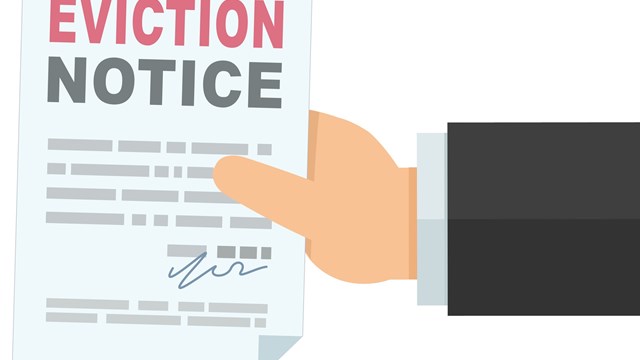Though many—in fact, most—co-op buildings flatly forbid shareholders from subletting their apartments to rental tenants, many co-op (and many more condo) buildings have populations of subtenants residing in them. Sometimes an apartment owner or shareholder takes on a roommate, or has a friend or family member move in for an extended period of time. The reasons for these arrangements can vary widely, from the purely economical (a roommate can help defray costs) to the emotional (a parent or sibling needing support during an illness), and are for the most part peaceful and drama-free.
That said, friction does occasionally arise between rental tenants and fully-vested shareholder/owners, or between tenants and the board. And in in the case of Airbnb, when apartments are rented out to complete strangers for a few days, that friction can ignite into serious acrimony, and even lead to litigation.
Let’s take a look at the gray areas between legal and illegal tenancy in co-op and condo buildings, and how boards can protect the stability and security of their communities while also respecting owner's rights.
Co-op vs. Condo
The difference between the two forms of residential housing is particularly stark when it comes to rental tenants.
“The traditional sublet dispute, on the basic level, is when there’s a landlord and then a subtenant. Technically as a co-op owner, you’re a tenant of the cooperative corporation,” explains Austin Brown of the Austin Brown Law Firm in Manhattan. “So you have a lease that delineates your rights as far as subletting goes. For legal sublets, most co-ops want to have a board interview [of the prospective sublettor]; they want to make sure that the tenant is going to be able to pay the maintenance, that they’re going to be good neighbors, the same way that they would want from a shareholder.”
This process is onerous by design, as co-ops tend to dissuade sublettors; indeed, the inability to easily rent out apartments is one of the primary reasons co-ops tend to cost less (and sell for less) than similarly-appointed condos. “I lived in a co-op for seven years, that we couldn’t rent out at all,” Brown recalls. “They just wouldn’t even entertain the notion of it. And it was right there in the proprietary lease.”
That doesn’t mean that rentals don’t take place—the illegal sublet has been part of the fabric of New York City for generations—just that the consequences are more dire if and when the situation is discovered. “With the illegal ones, you’re violating the co-op's proprietary lease in much the same way that you would if you were in a regular rental building,” Brown says. “It’s a little more complicated because of that proprietary lease issue, but ultimately, if you’re in violation of that lease,the board can bring the case to evict both the owner of the premises and the subtenant in housing court, in the same way you would in regular landlord-tenant court with a sublessee.”
Condos are not structured in the same way as co-ops. They are the residential real estate version of unfettered capitalism, while co-ops are highly regulated socialists. “With condos it’s different, because condos are subdivisions,” Brown continues. “It’s almost as if you tipped the building over, it would be a bunch of houses next to each other. It’s the same sort of zoning scheme, with every apartment considered a separate property. What you have in those cases is the condo association agreement and a lien on each of the units that the condo association has based on compliance with rules.” This makes it much more difficult for condos to prohibit, or even really impede, rentals—although they are trying. “Usually condos are pretty liberal, but I’ve been seeing condo agreements going out now that are much more restrictive about subletting, looking to require some kind of board approval.”
Fine Print
Co-ops, as mentioned, tend to be restrictive about who is allowed to reside in the building. This makes general headlines when someone like Madonna is denied permission to buy into a building, but the intent of the rule is to prevent the co-ops from turning into a mass rental unit. The more transient the composition of the building, the thinking goes, the less vested the tenants are to care for it, and the more scrutiny banks will impose when the building applies for any sort of a loan. But people are good at finding loopholes and other ways to get around the bylaws.
“Basically, in a co-op, the person with a legal right to be there is normally the shareholder, who’s listed on the stock certificate and the occupancy agreement or proprietary lease,” explains attorney Steve Chase of the Law Office of Kramer & Shapiro PC in Kew Gardens. “And then, normally, their immediate family. You sometimes get into all kinds of issues on that, because it can be a couple and their children, and then as the children get older and become adults, they still have a right to stay there.” But that right isn’t necessarily eternal. “In a lot of co-ops, if a child moves out and goes away, other than to college or service in the army, and they come back years later, often they lose that right to have an automatic succession to the stock or the apartment.”
Another way to bend the rules concerns the roommate law. “Under the roommate law, which does apply to co-ops, a shareholder of record is allowed to have an additional occupant, and their minor children, live with them,” Chase says. What often happens is that 'Dave' owns the apartment, and 'Bill' moves in as his roommate...along with Bill's wife and kids. Then Dave moves out without bothering to alert anyone on the board or management, and continues to collect rent from Bill. In this scenario, “The so-called roommate is living there independently, which is really not covered by the roommate law,” says Chase. “And it becomes an illegal sublet at that point.”
Of course, it can be very difficult to prove that Dave no longer lives there. How often do you see your neighbors, really? This reporter lived in an apartment in Astoria for three years, and saw my next-door neighbors exactly once in all that time. And the onus is on the building to prove that Dave now makes his residence in Florida, or Arizona, or across town.
“It’s very difficult for the co-op sometimes, because it’s the co-op’s obligation to prove that the shareholder of record has moved out and is living elsewhere,” Chase explains. “If they don’t have any documentation, then there’s almost a presumption in housing court that the shareholder is living there, and the roommate law would cover that.” Those cases tend not to end well for the co-op.
Then you get into the existential question: if Dave has moved out, but Bill and his family are good neighbors who make very little noise, go to bed at 9 o'clock on the nose every night, and tip the super at Christmas, why bother evicting them?
“Often the co-op isn’t aware of the problem unless a neighbor complains,” Chase says. “So if you do have a sublettor who is having loud parties, or is disturbing other people in some manner, it usually comes to management’s attention. But if somebody’s living there quietly, the building administrators don’t generally have a monitoring system where they know who’s coming in and out of the apartment on a regular basis. Many co-ops do an annual inspection. They visit the apartment to check that there’s no illegal washers or dryers or other safety issues, and some of them do try to determine who’s in the apartment. But it’s very difficult, because these inspections are usually on notice, so people make arrangements to either come back from Florida, or from living elsewhere, and if they’re there only once a year, it’s for the inspection by the co-op board or its representatives. It’s definitely an uphill battle for a lot of these co-ops and their boards.”
Legal Actions
But if Bill is cooking methamphetamines in his apartment, or running a speakeasy, or otherwise behaving badly, what then? Or, in an increasingly common scenario, what if he’s sub-subletting the apartment, or running it as a short-term Airbnb rental? How does a building get rid of him?
“Most condos, upon discovery of somebody basically creating a kind of B&B operation, it’s kind of similar to co-ops,” says Joseph Strasberg, president of the Rent Stabilization Association. “There’s a requirement for the counsel to send a letter to the owner of record to cease and desist. And if they fail to do that, then their only recourse at that point is to go into court.”
This can be complicated. “There are two ways of going into court,” Strasberg says. “One is to go into housing court to evict the illegal tenant, but boards also have a right to go into Supreme Court and force the sale of the unit for a violation of the condo or co-op agreement.” The latter is the nuclear option. “That’s a very drastic step. It’s almost a tool of last resort that they’ll use going after an owner who just basically doesn’t care, because he’s making so much money illegally subleasing the apartment and rolling it over, he’s willing to take the chance.”
“In housing court in the five boroughs a landlord can bring two kinds of cases,” Brown explains. “One is for non-payment, and the other is a holdover. For non-payment, you send a five- or 10-day notice, depending on the agreement, and they have to pay the money in that time or action will be filed against them. Once that 10 days is expired, you go down to the court, buy an index number, file a case, and you have to serve them,” he says.
“In a non-payment case, there’s a statutory time period where the tenant has to come in. It usually ends up being 20 days to a month before they’re in court, and nothing ever happens the first time in court, unless the tenant is willing to leave. So a lot of the time you’ll say, ‘If you’re willing to leave within 30 days, we’ll waive the rent arrears.’ But you have to say, 'converted to holdover, judgment of possession, our tenant leaves by this specific date.’ And if they don’t leave by that date, there’s also a money judgment against them. Then if they don’t leave and don’t pay, you can call the marshals.”
This is less dramatic—and often less effective—than it sounds. “The reality is that the law doesn’t want anybody out on the street, and if the tenant comes back to court for up to six months, every month they can come back in and say that they don’t have a new place to live yet, and the judge will give them another month to try and find a place,” Brown says. “So this is something that could take eight months to a year, if they agree right away. I’m dealing with one of those right now, and it’s a pain.”
Even something as egregiously illegal as using a co-op apartment as an Airbnb revenue generator month after month does not guarantee an automatic court victory. “The reality is—and this is the most important thing from my perspective,” says Strasberg, “the number of cases where tenants have been evicted, or the owner of a co-op or condo has been penalized with a forced sale for this kind of activity, is very negligible. So because you don’t have the courts coming down real hard on this, it actually incentivizes other people who want to do this to do it until they don’t have a choice but to give up on it.”
Greg Olear is a freelance writer and a frequent contributor to The Cooperator.










Leave a Comment